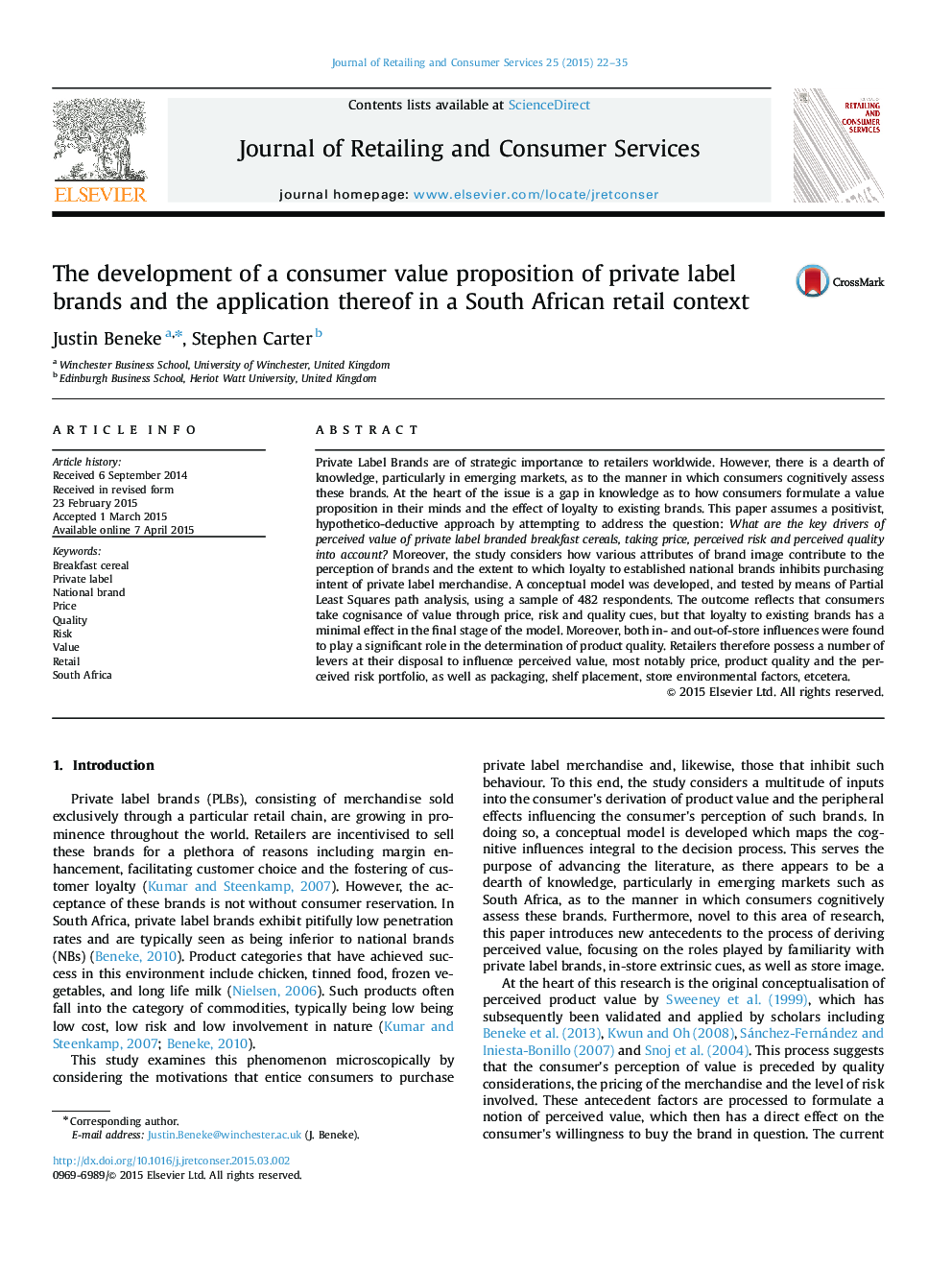| Article ID | Journal | Published Year | Pages | File Type |
|---|---|---|---|---|
| 1028797 | Journal of Retailing and Consumer Services | 2015 | 14 Pages |
Abstract
Private Label Brands are of strategic importance to retailers worldwide. However, there is a dearth of knowledge, particularly in emerging markets, as to the manner in which consumers cognitively assess these brands. At the heart of the issue is a gap in knowledge as to how consumers formulate a value proposition in their minds and the effect of loyalty to existing brands. This paper assumes a positivist, hypothetico-deductive approach by attempting to address the question: What are the key drivers of perceived value of private label branded breakfast cereals, taking price, perceived risk and perceived quality into account? Moreover, the study considers how various attributes of brand image contribute to the perception of brands and the extent to which loyalty to established national brands inhibits purchasing intent of private label merchandise. A conceptual model was developed, and tested by means of Partial Least Squares path analysis, using a sample of 482 respondents. The outcome reflects that consumers take cognisance of value through price, risk and quality cues, but that loyalty to existing brands has a minimal effect in the final stage of the model. Moreover, both in- and out-of-store influences were found to play a significant role in the determination of product quality. Retailers therefore possess a number of levers at their disposal to influence perceived value, most notably price, product quality and the perceived risk portfolio, as well as packaging, shelf placement, store environmental factors, etcetera.
Related Topics
Social Sciences and Humanities
Business, Management and Accounting
Marketing
Authors
Justin Beneke, Stephen Carter,
